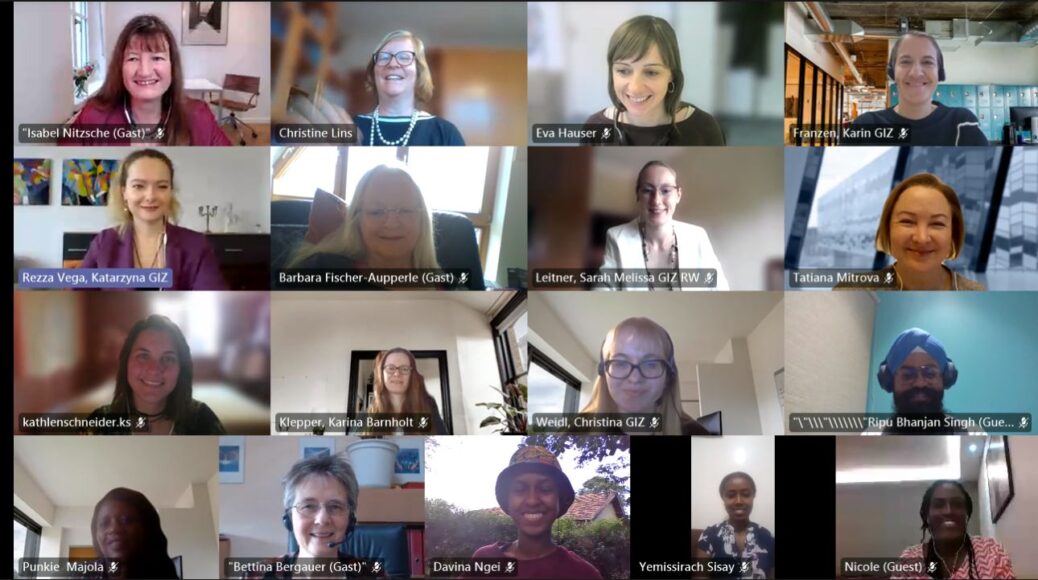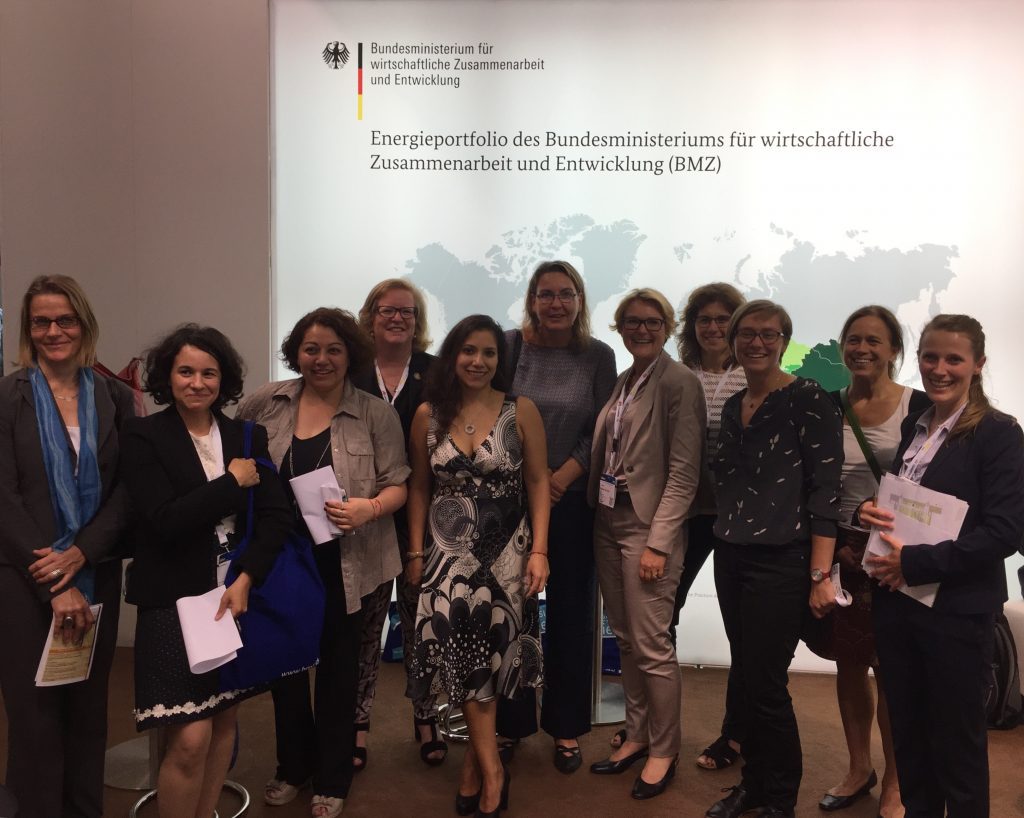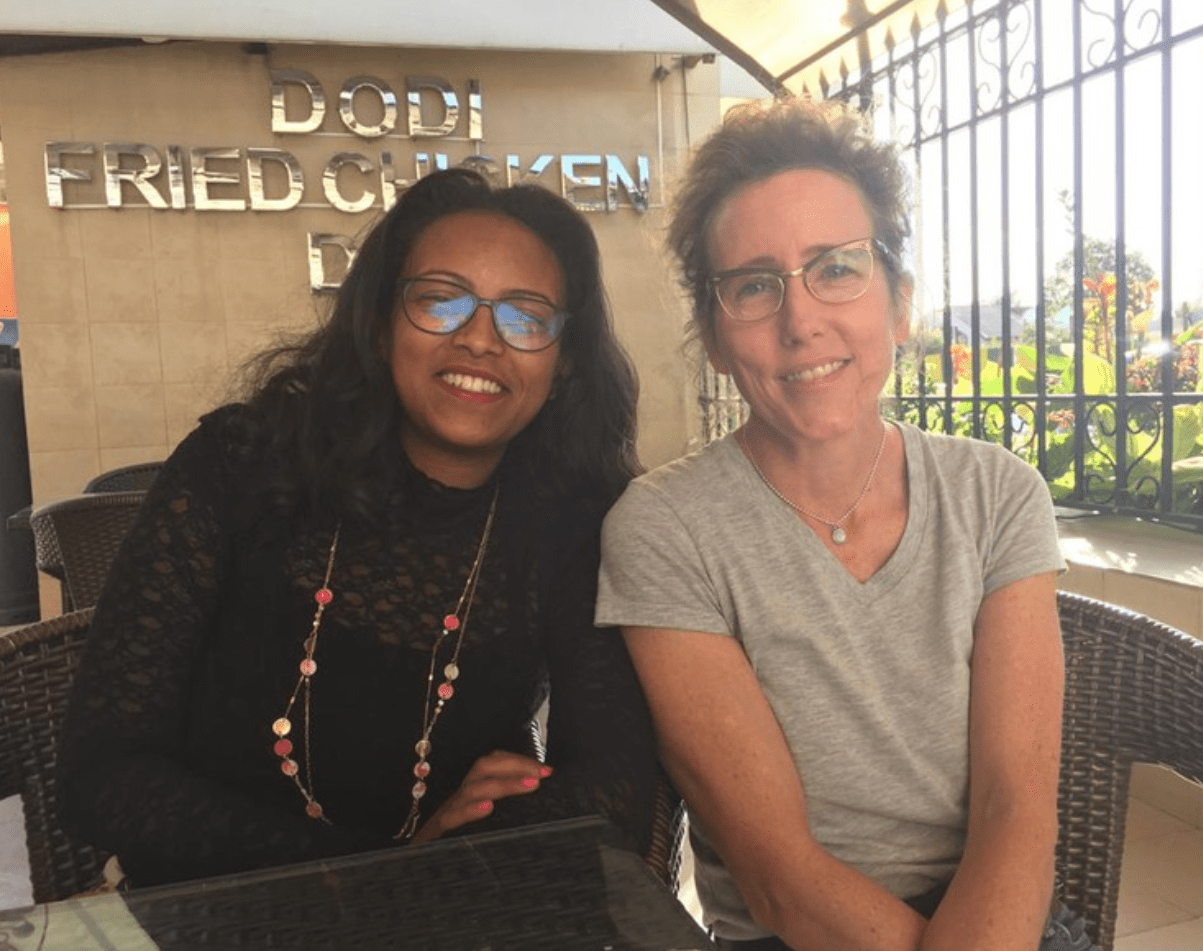The energy transition is in full swing in many countries, with women still underrepresented in the global energy workforce. It is important to note that gender equality has proven to be an indispensable factor in enhancing sustainability, driving innovation, opening new pathways for technology deployment, bringing fresh perspectives to the development of societies as well as attracting and retaining a richer pool of talent.
Amidst this, regional and national women in energy networks all over the globe aim to empower women working in the energy sector, to help advance their careers, and to make the sector more gender-balanced.
Understanding this, the Global Women’s Network for the Energy Transition (GWNET) and the Deutsche Gesellschaft für Internationale Zusammenarbeit (GIZ) GmbH, on behalf of the German Federal Ministry for Economic Affairs and Energy (BMWi) and under the German bilateral energy partnerships, organised a virtual networking event for women energy networks on March 15th 2021.
With network representatives from Austria, Brazil, China, Ethiopia, Germany, Jordan, Norway, Rwanda, Pakistan, Russia, South Africa, and South Asia, this event highlighted the diversity of perspectives in the energy sector and created a shared platform aimed at advancing women’s participation in the energy transition, all of this against a backdrop of the pandemic which has had numerous impacts on gender and the workforce.
The Power of Networks
The power of networks was highlighted by key-note speaker Isabel Nitzsche, who provided practical tips and advice for networking while stressing the importance of building and maintaining strategic networks.
Through her keynote address, it became clear that networks hold a lot of power in professional development, and that informal networks (family, friends, neighbours, school friends) are often an untapped resource with great benefit.
Isabel’s speech brought into context the aims for the session and encouraged participants to make use of this networking platform to advance their goals.
Getting Down to Work
After a short break, participants were divided into breakout sessions to dive into deeper discussions and share their ideas with each other.
Breakout Session 1: The Impact of the Global Health Pandemic on Activities
This session aimed to identify the challenges in executing activities during the pandemic, as well as highlight how women’s networks have adapted and even grown during this period.
Key findings from this session included:
- The pandemic has created both opportunities and challenges. On the one hand, activities like mentorship programmes work well in digital formats and access to events and meetings has become easier and more democratic through virtual participation.
- On the other hand, obstacles including managing childcare while working from home need to be taken into consideration, especially for women who bear most of the responsibility. Furthermore, it is important to remember that digital infrastructure including a stable internet connection is a problem for many, reducing the accessibility of many virtual activities.
- The pandemic has provided access to digital tools and skills which can be used even as we transition to a post-pandemic future.
- It has been difficult to find support from stakeholders and partners during this pandemic, as gender equality is not the highest priority for many.
- With the overload of online interaction, making virtual events and meetings shorter, more creative, and personalised can help support meaningful engagement.
Breakout Session 2: Hot Topics for Women in Energy Networks in 2021
This session aimed to foster discussion around planned activities by women’s energy networks and the current challenges faced, while also cultivating relationships between the different networks to allow for future collaboration.
Key findings from this session included:
- Funding can help professionalise networks and ensure sustainability.
- Data is crucial in understanding the status of gender equality across different countries, however, current gender-disaggregated data is limited.
- There are governance challenges for volunteer networks, and understanding how to carry out activities and institutionalise networks is important.
- Guidelines for the establishment and operation of women in energy networks can help facilitate the set-up and running of such networks.
- Mapping different networks and their activities can help identify gaps, overlaps, and synergies, while also creating a shared knowledge base.
Providing a platform for women’s networks to share, grow, engage, and collaborate is extremely crucial, and allows us to advance much further in achieving our shared goals – advancing the participation of women in the energy transition in all parts of the world.
The organisers of this event will continue to provide platforms such as this, ensuring that we are building on each other’s strengths for a more powerful push towards an inclusive and gender-equal energy transition. Furthermore, concrete guidance for the set-up and operation of regional/national women in energy networks will be developed.











